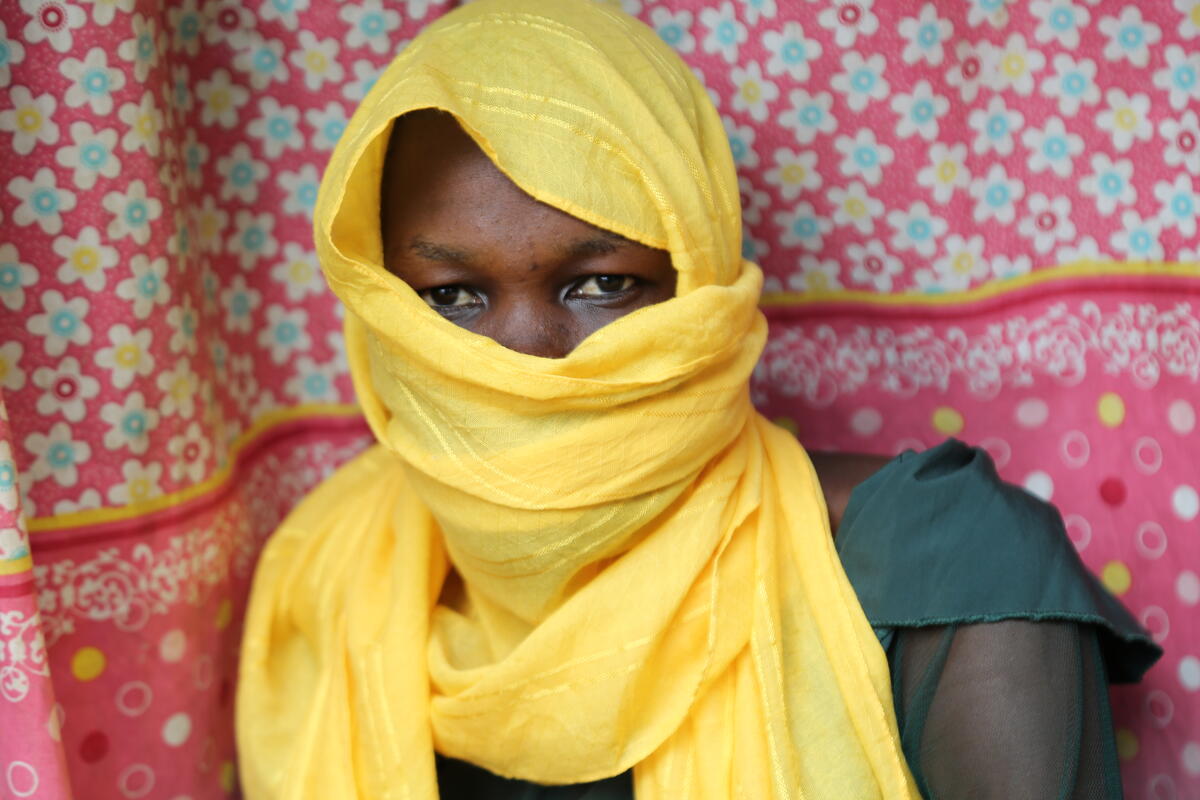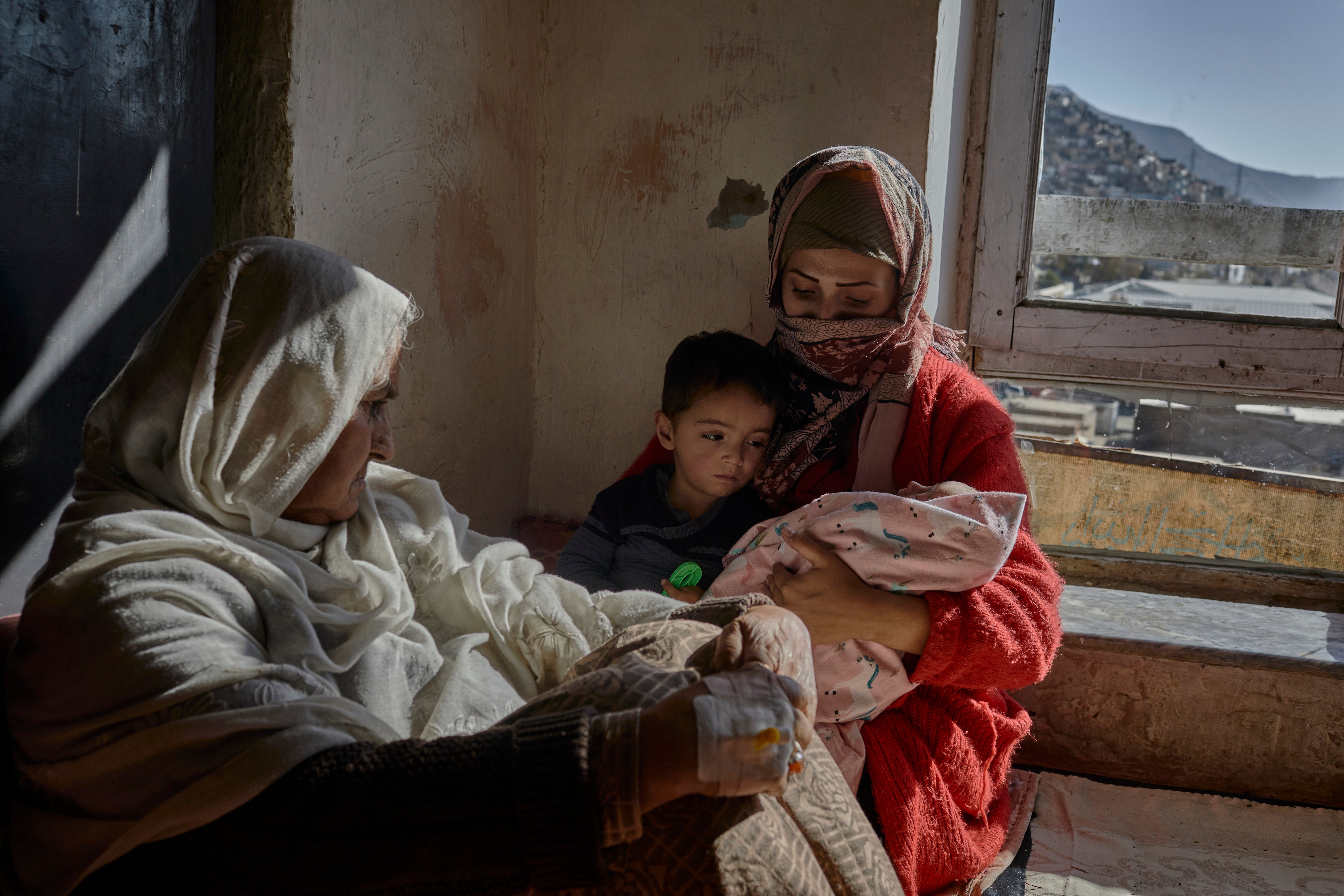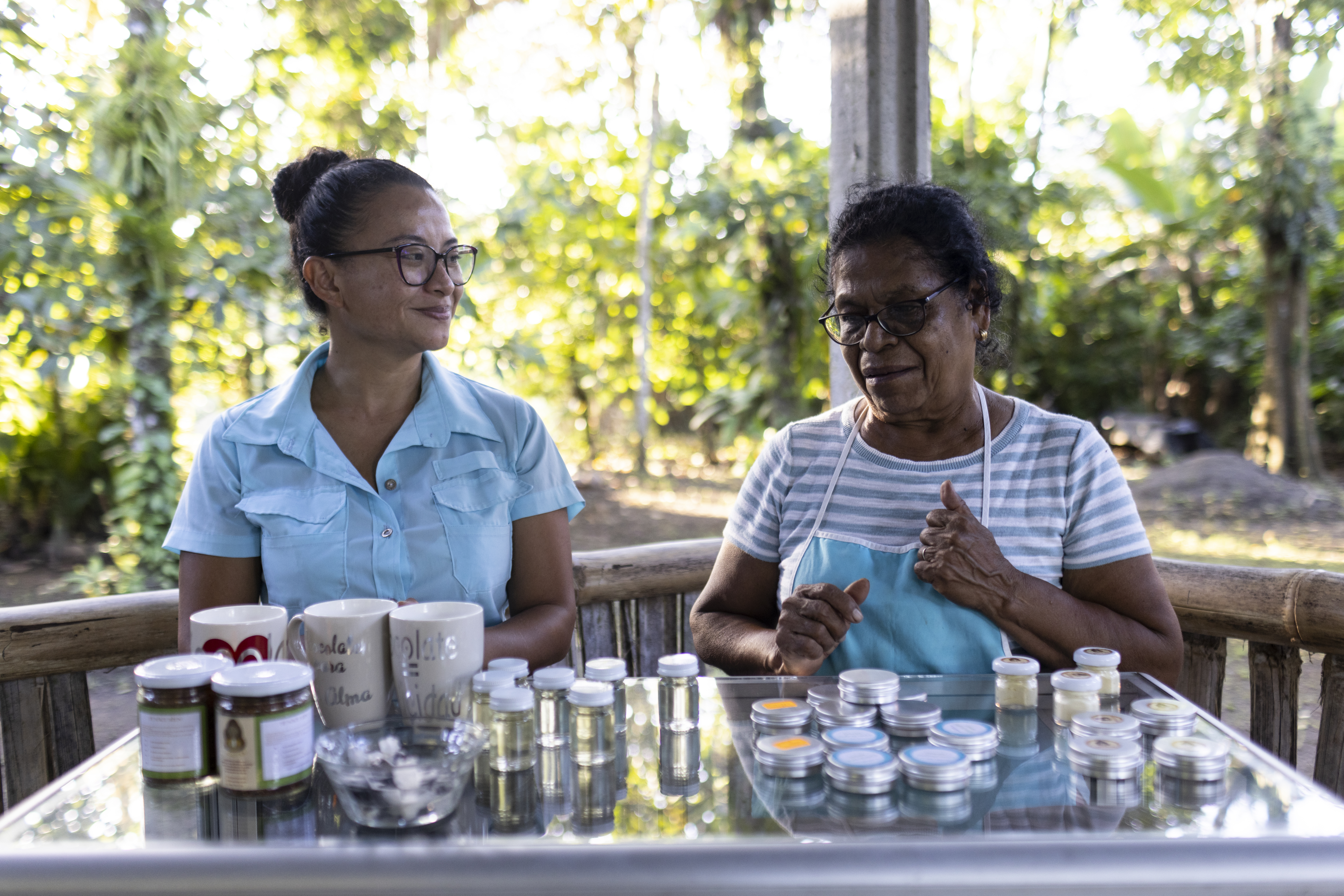Q&A: Peering beyond the burqa to support Afghan women
Q&A: Peering beyond the burqa to support Afghan women

QUETTA, Pakistan, October 5 (UNHCR) - Lynda Lim has worked with refugees in her native Malaysia. Currently a community services officer with UNHCR in the city of Quetta in south-west Pakistan's Balochistan province, the UN Volunteer braves late-night blasts and bumpy rides to address women's issues in conservative Afghan communities. She spoke recently to UNHCR Senior Public Information Assistant Babar Baloch. Excerpts from the interview:
Has your field experience prepared you for Quetta?
Quetta is very different from my previous field experiences. Before I came, I was told about the very conservative atmosphere where women have to be appropriately dressed and covered; to be prepared for limited mobility due to the cultural and security situation. But I did not expect it to be as conservative as this. Being a woman, I find it strange when handshakes with local men are not permitted. I should not be seen walking on streets alone and must be accompanied by a man. Another shock is the sporadic bomb blasts that constantly awaken me in the middle of the night.
Describe your typical working day.
As a community services officer, my role is to address the broad protection needs of and risks faced by Afghans, focusing on the female-headed households and children who lack community support, and ensuring that their rights to basic medical services, education, water and food are adequately addressed.
The refugee camps are between two and seven hours' drive from the Quetta office on bumpy and dusty roads. My first stop when I get to a camp is the Basic Health Unit (BHU). I talk to the doctors to find out about the services, medicines and the trends in diseases. The BHU also functions like a community centre where one can access information about all the happenings in the camp.
Most Afghan women do not have the freedom to walk around the camp as it is inappropriate for them to be seen in public. They face multiple burdens and gender discrimination, and have limited access to information and discussion of these issues. Most girls are not allowed to attend school. The BHU is one of the very few places they are allowed to visit. As a woman, I have the added advantage of having direct access to them, though it takes them a while to open up. We also try to sensitize refugee men, particularly the male community leaders, by helping them to see and understand the importance of sending their girls to schools, and to recognize and respect the rights and value of every woman.
What are some of your main achievements and continuing challenges?
Working among refugees gives me a day-to-day sense of achievement. But I realize there are constraints on how much we can help them. Issues like sexual and gender-based violence are taboo in the Afghan refugee community. Speaking about their trauma puts victims at a greater risk. Many survivors do not report their cases as they may be seen by the community as bringing disgrace to their family. Therefore, it is important for us to make sure our intervention does not re-traumatize the survivor though insensitive assistance.
I worked with UNHCR's partners to reactivate a mechanism for reporting and responding to such cases in Balochistan's camps. There have been small victories - for instance, there was a woman who was badly abused by her husband. There was no way out for her, but even then it took all her courage to report it to UNHCR partners who were responsible for providing help. She finally got a divorce and now lives peacefully with her relatives. We've crossed some barriers, but there is still a long way to go and we have to keep developing capacities and raising awareness among the communities.
Reduced funding is another challenge, especially when working in a protracted refugee setting. Resources are spread thin in our programme and we have to find ways to spend our limited resources on many pressing needs of the refugees.
Nonetheless, I like the complexities of UNHCR's work - in prevention, protection, relief and to some extent, development. But there are costs, as we are always at the forefront of humanitarian crises and often face security constraints.
What have you learnt from the refugees?
It's impossible to be untouched by the strength and resilience of Afghan women against all odds. I am taken by a handful of Afghan women whom I have encountered, who live from hand to mouth but even then have a strong sense of hope. I am also impressed by the strong community support among Afghan refugees. It is amazing to see the support to widows, divorcees, orphans, elderly, physically and mentally challenged people in camps. One would think that displacement would severely affect communal bonds, but what I observe among the Afghan refugees is just the opposite.
I've also seen for myself that refugees are capable people who contribute to the host community through business and production. It is misleading to perceive them as passive recipients of humanitarian aid.
What do you see as the way out for Afghans in Pakistan?
There is no quick and easy solution. To me, the central issue is to identify the different categories of Afghans within the 2 million who have registered recently. For those who do not have any protection concerns to return to Afghanistan, gradual and voluntary repatriation can be an option after a careful assessment of the situation, to ensure that conditions of safety and dignity can be met. For those who face obstacles to return after 2009 [when the Pakistan government's Proof of Registration card expires], UNHCR must work with the two governments and international community to find other durable solutions.









